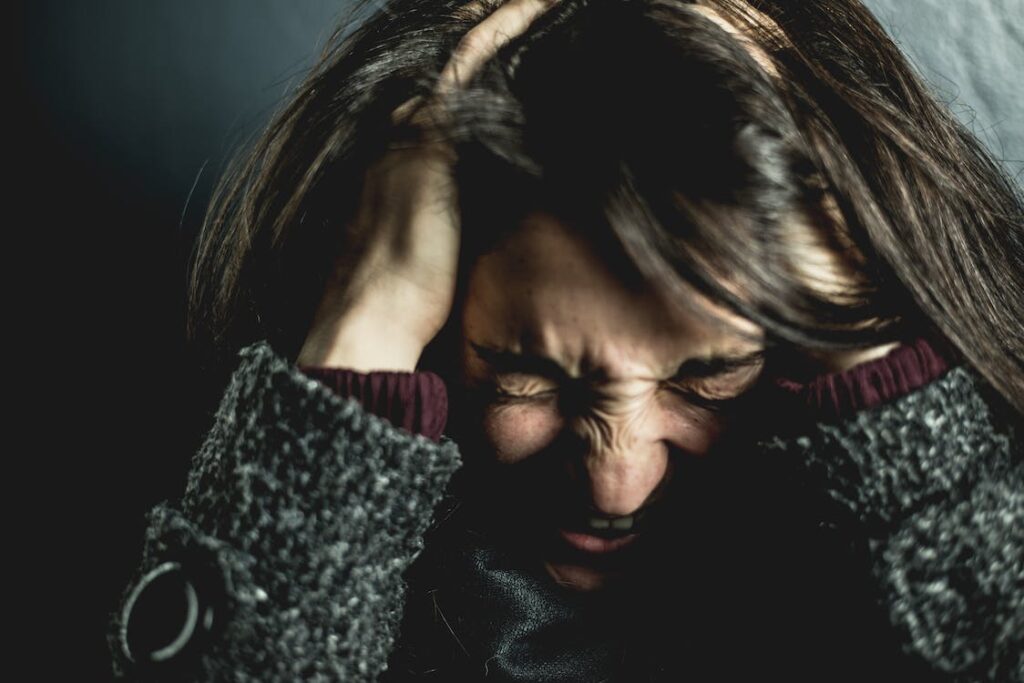
Overcoming Anxiety: Recognizing the Signs and Symptoms
Discover the comprehensive guide to understanding “What are the symptoms of anxiety?” Learn how to identify the signs and manage anxiety effectively.
Introduction
Anxiety is a common human experience that can manifest in various forms and intensities. Understanding its symptoms is crucial for effectively managing and overcoming it. In this detailed guide, we delve into the diverse signs of anxiety, offering insights and strategies for coping with this challenging condition.
What are the symptoms of anxiety?

Recognizing Physical Symptoms
Anxiety often manifests physically, affecting the body in numerous ways. From rapid heartbeat to muscle tension, these symptoms can be alarming. Understanding them is the first step toward managing anxiety effectively.
Anxiety can lead to increased heart rate and palpitations, leaving individuals feeling as though their hearts are racing uncontrollably.
Muscle pressure is one more typical actual side effect of tension. Individuals may experience stiffness or tightness in their muscles, particularly in the neck, shoulders, and back.
Understanding Emotional Signs

In addition to physical manifestations, anxiety can profoundly impact one’s emotional well-being. Recognizing these emotional signs is essential for addressing underlying anxiety issues.
Feelings of excessive worry and apprehension are hallmark emotional symptoms of anxiety. Individuals may find themselves fixating on potential threats or catastrophizing future events.
Irritability and restlessness are also common emotional indicators of anxiety. Individuals may struggle to relax and may become easily agitated in stressful situations.
Cognitive Clues
Anxiety can significantly affect cognitive functioning, leading to disruptions in concentration and decision-making processes.
Difficulty concentrating is a prevalent cognitive symptom of anxiety. Individuals may find it challenging to focus on tasks or sustain their attention for extended periods.
Racing thoughts are another cognitive hallmark of anxiety. Individuals may experience a constant stream of intrusive or distressing thoughts, making it difficult to quiet the mind.
Behavioral Indicators
Anxiety can influence behavior in various ways, leading individuals to engage in avoidance or safety-seeking behaviors.
Avoidance behaviors, such as avoiding social situations or specific triggers, are common among individuals with anxiety. These behaviors may provide temporary relief but can ultimately perpetuate anxiety in the long run.
Safety-seeking behaviors, such as seeking reassurance or constantly checking for potential threats, are also prevalent among anxious individuals. While these behaviors may offer a sense of control, they can reinforce anxiety patterns.
Impact on Daily Life
The symptoms of anxiety can have a profound impact on daily functioning, affecting various aspects of life, including work, relationships, and overall well-being.
Impaired sleep is a significant consequence of anxiety, with many individuals experiencing difficulties falling or staying asleep due to racing thoughts or physical discomfort.
Social withdrawal is another common consequence of anxiety, as individuals may feel overwhelmed or fearful in social settings, leading to isolation and loneliness.
Seeking Support and Treatment
While experiencing anxiety symptoms can be challenging, it’s essential to remember that help and support are available. Seeking professional guidance and treatment can significantly improve symptoms and enhance overall well-being.


FAQs
What are the most common symptoms of anxiety?
The most common symptoms of anxiety include physical manifestations such as increased heart rate and muscle tension, as well as emotional signs like excessive worry and irritability.
How do I know if I’m experiencing anxiety or just stress?
While stress and anxiety share some similarities, anxiety often involves persistent worry and physical symptoms that interfere with daily functioning. Consulting a healthcare professional can help differentiate between the two.
Can anxiety symptoms manifest differently in children?
Yes, anxiety symptoms can manifest differently in children, often presenting as irritability, difficulty concentrating, or physical complaints such as stomachaches or headaches.
Is it possible to manage anxiety without medication?
Yes, many individuals find relief from anxiety symptoms through non-medication approaches such as therapy, relaxation techniques, and lifestyle modifications.
What role does exercise play in managing anxiety?
Regular exercise can be an effective strategy for managing anxiety, as it helps reduce stress hormones, promote relaxation, and improve overall mood.
When would it be advisable for me to look for proficient assistance for tension side effects?
It’s essential to seek professional help if anxiety symptoms significantly interfere with daily functioning, persist over time, or cause significant distress or impairment.
Conclusion
Understanding the symptoms of anxiety is the first step toward effectively managing this common condition. By recognizing the diverse manifestations of anxiety and seeking appropriate support and treatment, individuals can take proactive steps toward improving their mental health and overall well-being.
